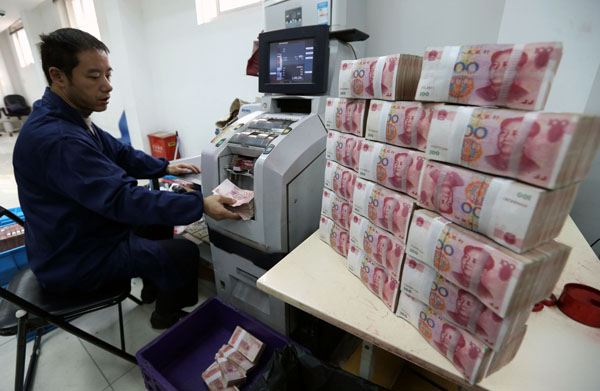 |
|
A bank employee prepares bank notes at an Industrial and Commercial Bank of China Ltd cash center in Wuxi, Jiangsu province. [Photo provided to China Daily] |
On Saturday evening, the People's Bank of China announced it was "asymmetrically" adjusting downward the benchmark interest rates of domestic financial institutions for RMB savings and loans, and allowing the institutions greater freedom in floating deposit interest rates upward. Being the second adjustment within three months, the move aroused much discussion. Comments:
Facing the pressure of attracting depositors, domestic banks will not dare to cut deposit rates even with lower benchmarks; on the contrary, many will possibly float deposit rates to the upper limit. That was what happened last November when the central bank cut interest rates and the conditions this time are similar.
Dong Dengxin, a researcher on finance and securities at Wuhan University of Science and Technology, March 1
The central bank cut the benchmark interest rates in an asymmetric way, namely higher interest rates on deposits than on loans. That move will cut the profits for banks, and allow the real economy a bigger share.
Lian Ping, chief economist at the Bank of Communications, March 1
There had long been expectations that the central bank would cut interest rates, but few predicted it would come so early. The time chosen by the central bank, days before the annual sessions of the National People's Congress and the Chinese People's Political Consultative Conference National Committee, shows it hopes the sessions will discuss more financial reforms.
Li Yiping, professor of economics at Renmin University of China, March 1
While a series of economic indexes show higher deflationary pressure and many economies have adopted quantitative easing policies, there is no need for China's central bank to maintain a stable monetary policy. By lowering benchmark interest rates, the central bank is aiming to ease the financing pressure and prevent fierce capital outflows. These moves are necessary and should have been done earlier.
Hong Hao, chief strategist at BOCOM International Holdings Company Limited, March 1
